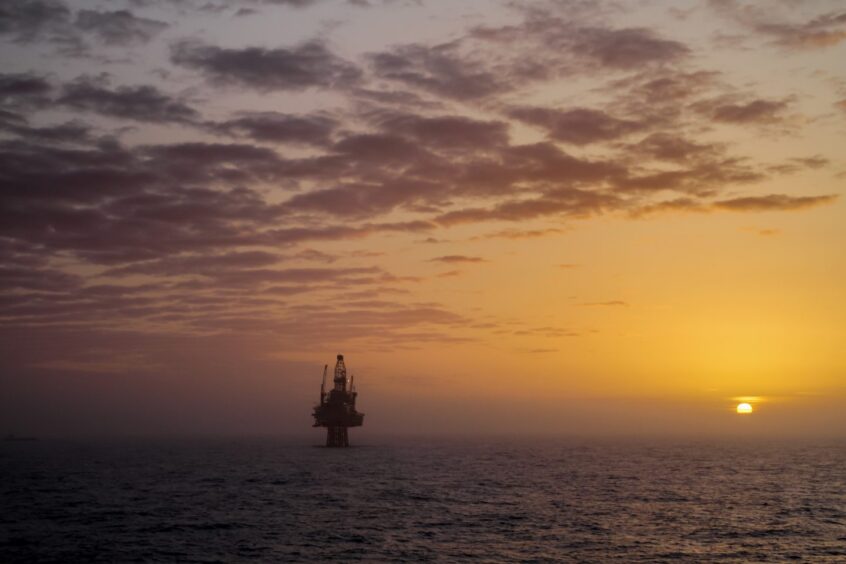
This year I retired after a half century working in the UK oil and gas industry. My experience was of a fine industry which achieved stunning feats of engineering excellence and delivered economic prosperity for the UK.
However that industry now faces a wholly premature death. This is a tragedy which could and should have been avoided.
It is clear who bears the responsibility for this state of affairs.
Save for a very few notable exceptions, UK politicians have repeatedly demonstrated a staggering level of ignorance and incompetence regarding this vital UK asset.
Instead of providing an encouraging environment for this hugely important national enterprise, politicians have repeatedly mistreated it whilst also burdening it with staggering high levels of taxation.
Three Chancellors of the Exchequer did appear to recognise the importance of the industry and the need to avoid over taxing it, namely, Nigel Lawson, Alistair Darling and George Osbourne.
As for the others, including the last Conservative and current Labour incumbent, they have all carelessly treated the industry as a cash cow, to be aggressively milked, without regard for its role as a vital provider of jobs, wealth and energy security for the UK.
Today the industry endures an appallingly high tax rate of 75%, imposed by the Conservatives, whilst the current Labour government plans to increase that rate to 78% and restrict the industry’s ability to take relief for the cost of investment.
They have also stated they will deny the industry any new Production Licences. No industry can long survive under such a regime. It is a toxic formula designed to bring an industry to its knees.
It is as an aggressive move to end the production of oil and gas in the UK, presumably in the mistaken belief that this will advance the cause of Net Zero.
It will do no such thing. Billions of barrels of UK oil and gas reserves will simply remain in the ground, to be replaced by non-UK production.
Furthermore, this will be an irreversible event as the industry’s high tech UK supply chain and extensive offshore delivery infrastructure (each having involved hundreds of billions of pounds of investment) once dismantled will be mostly impossible to replace.
For both it’s a case of “use it or lose it”.
Maximise Economic Recovery
Whilst politicians are the main cause of this tragedy, others, including some within the industry, were also complicit.
The industry’s regulator, the Oil and Gas Authority (OGA), now trading as “North Sea Transition Authority”, has delivered a terrible regulatory confusion.
Not long after its creation, the OGA decided to conflate its original mandate, which was to maximise the economic recovery of the UK’s remaining oil and gas reserves (“MER UK”), with the government’s self-imposed Net Zero target. This introduced an evident and wholly unnecessary confusion.
When the OGA concocted this silly idea, it was already apparent that the UK’s needs for oil and gas could not be fully satisfied from the UK’s remaining reserves.
The goal should have simply remained MER UK, in order to limit the several negative impacts of imports.
There was no threat that UK offshore production would increase either the UK’s consumption of oil and gas or its CO2 emissions.
The muddling and misguided introduction of Net Zero into the OGA mandate enabled politicians to pretend they were doing something important on the global stage (which they were not) by hastening the decline of a great UK industry.
It was a crazy error.
Oil & Gas UK
Sadly, my former employer, Oil & Gas UK, also played along with the muddled thinking on Net Zero and MER UK.
Furthermore, at exactly the time the industry had serious need of an unconflicted and sharply focussed champion, Oil & Gas UK “went walkabout”.
It perversely dropped “oil and gas” from its name, which was changed to OEUK, and diversified its operations to encompass offshore wind etc.
These ill-conceived and confusing moves did the industry a significant disservice. They should be reversed.
Political failures
However, the OGA and OEUK errors were only contributory factors.
Fundamentally, this tragedy is the fault of the many politicians who failed in their stewardship of one of the UK’s greatest industrial success stories.
They were grossly negligent in their handling of this industry and of the interests of those who invested their labour and risked their capital to produce this great fortune for the UK.
Furthermore, like foolhardy lottery winners, they quickly spent the entirety of that “windfall” which fell to them and which they certainly had not earned.
With no new oil and gas reserves being brought onstream an acceleration in the decline of UK production will inevitably occur.
For a short while, as the crippling level of taxation bites on remaining production, tax revenues will increase. However, this will not last for more than a year or so.
Taxation revenues from UK oil and gas will then collapse, and decommissioning reliefs (long delayed due to another folly of cash greedy governments of the past) will increasingly have to be paid by HMRC.
The whole affair will become fractious and seriously tax negative. There will be a significant drain on the public purse.
In a very few years, essentially thanks to bad government, next to nothing will remain of the industry nor of the riches it produced for the UK Exchequer (its biggest beneficiary by far).
All gone. All spent – and not even one penny in a Norwegian style sovereign wealth fund for the UK.
The ending did not have to be this way. Stronger and better informed politicians should have spoken out and resisted the calls of those looking to undermine and destroy such a fine UK industry.
They might have also invested a small part of the huge tax take specifically for the benefit of future generations.
However, tragically, very few politicians in the past, and none in recent years, had the foresight, intelligence or courage to do any of that.
Meanwhile, elsewhere in the world, outside the EU, the oil and gas industry continues to invest and grow, whilst events on the international scene again demonstrate how important access to an indigenous source of oil and gas truly is.
This is indeed a very British tragedy.
Malcolm Webb, chief executive of Oil & Gas UK (formerly UKOOA) from 2004 until June 205.
Recommended for you


 © Supplied by PA
© Supplied by PA
 © Shutterstock
© Shutterstock